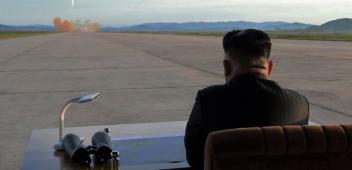Wicked weapons: North Asia nuclear tangle
The United States faces major challenges in engaging China, Japan and the Korean Peninsula in its quest for nuclear disarmament. Rory Medcalf explores the ‘wicked’ nature of the region’s nuclear insecurity: how fixing one part of the problem risks aggravating others. He recommends ways forward, involving mutual and coordinated concessions among the United States, Japan and China, and taking account of the region’s strategic realities.

- Nuclear disarmament in North Asia cannot advance far unless the region’s strategic realities change.
- China, Japan and the United States would all have to make concessions.
- China’s pressure against the North Korean nuclear program would be critical.
Executive Summary
The new international push against nuclear weapons needs to be pursued with care lest it paradoxically worsen nuclear dangers in North Asia. This region, where the interests of great powers intersect, presents a ‘wicked problem’: fixing one aspect risks aggravating others. Two linked dilemmas stand out: how China and others can turn North Korea away from the nuclear path without increasing regional instability; and how the United States can engage China on nuclear disarmament without increasing Japan’s strategic anxiety.
A way out will demand mutual and coordinated concessions. Washington has led the way, and President Obama’s chairing of a special summit of the United Nations Security Council on 24 September 2009 will provide an opportunity for next steps. China should explain its long-term nuclear intentions, declaring an end to its non-strategic nuclear arsenal and a cessation of fissile material production. Beijing and North Korea will need assurances that US strategic capabilities are not intended for coercion. Japan will have to accept that the US nuclear umbrella is not meant to counter every kind of threat. And Washington will need to convince Tokyo and Seoul that it can defend them even with reduced reliance on nuclear weapons. All of this will be more feasible with China demonstrably leaning on North Korea.



